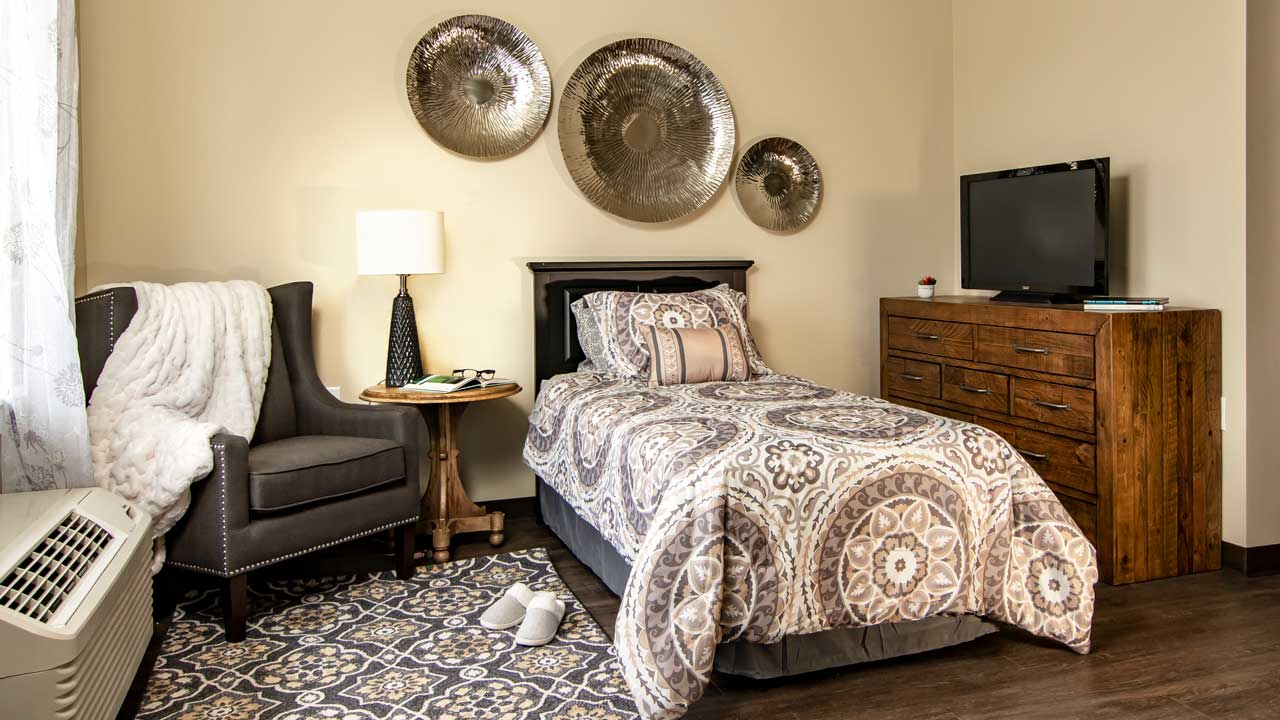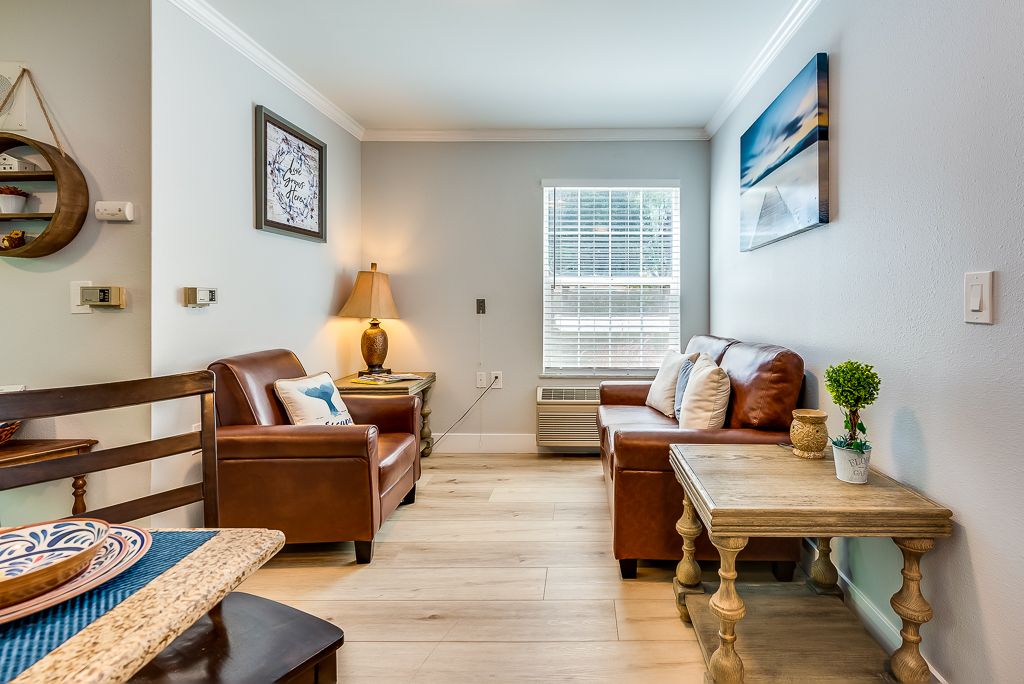How Boutique Memory Care Supports Daily Living for Seniors
How Boutique Memory Care Supports Daily Living for Seniors
Blog Article
All Concerning Memory Treatment Services: Why Tiny Memory Care Homes Are an Excellent Selection
Memory treatment solutions play a vital role in supporting individuals with Alzheimer's and dementia. Tiny memory care homes stick out for their customized method and intimate setup. With lower staff-to-resident proportions, these homes foster more powerful connections and customized care. Residents benefit from improved social communications and a secure environment. As households check out choices, understanding the distinct advantages of tiny memory treatment homes comes to be crucial. What variables should be considered when choosing the ideal home?
Understanding Memory Care Services
While numerous may know with general senior care alternatives, comprehending memory care services is important for families dealing with the challenges of cognitive decrease. Memory treatment specifically caters to individuals with conditions such as Alzheimer's condition and other kinds of mental deterioration. These services give an organized environment that concentrates on boosting the lifestyle for residents through specialized treatment and support.Memory care facilities are made to ensure security and safety and security, typically featuring protected settings to avoid roaming. Trained employee are offered all the time to aid with day-to-day activities, drug administration, and personal treatment. Additionally, memory care programs frequently include cognitive stimulation tasks, customized to engage citizens and advertise mental well-being. Households can gain from recognizing these services, as they allow informed decisions concerning their enjoyed ones' care, guaranteeing that their certain requirements and choices are addressed in a supportive and caring manner.
The Benefits of Tiny Memory Care Houses
Small memory treatment homes provide unique benefits that can considerably improve the lifestyle for locals with cognitive disabilities. One substantial benefit is the intimate atmosphere, which enables customized communications among team and residents. This smaller sized setting promotes meaningful partnerships, reducing sensations of isolation and stress and anxiety usually experienced by people with memory issues.Additionally, the lower staff-to-resident proportion in small memory care homes allows caretakers to provide even more alert supervision and assistance. This strategy not only improves security but also promotes a sense of protection for the residents.Moreover, small memory treatment homes can adapt rapidly to the distinct requirements and choices of each citizen, permitting a more homey ambience. Such an atmosphere can encourage social interaction and involvement in activities, eventually improving the day-to-day experiences of those coping with cognitive impairments.
Personalized Treatment Plans for Residents
Personalized treatment plans are important in memory care homes, as they deal with the distinct requirements and choices of each homeowner. These plans begin with complete assessments conducted by knowledgeable professionals, that review cognitive capabilities, case history, and individual rate of interests. This tailored method guarantees that care is not only efficient but also considerate of each person's dignity and autonomy.Moreover, personalized care plans are versatile, permitting modifications as locals' requirements evolve in time. This flexibility promotes a complacency and experience, which is important for people dealing with memory difficulties. Caretakers are trained to implement these plans continually, offering assistance that straightens with the residents' routines and preferences.Ultimately, personalized treatment plans improve the top quality of life for citizens by promoting interaction, wellness, and independence, making them a basic aspect of memory care services in tiny memory care homes.
Producing a Home-Like Setting
Creating a home-like environment is vital for cultivating comfort and knowledge in memory care settings, as it significantly affects residents' psychological well-being. Tiny memory care homes typically focus on personalized touches, such as warm color palettes, family members pictures, and familiar furnishings arrangements, which assist citizens really feel extra at convenience. Integrating components reminiscent of a traditional home, like comfy living rooms and public areas, urges a sense of belonging.Moreover, using all-natural light and exterior rooms can enhance the ambience, advertising leisure and peace. Employee play a substantial role in keeping this atmosphere by engaging with homeowners in a caring manner, treating them like family. Routine activities, such as food preparation or horticulture, can also add to a home-like feeling, supplying opportunities for citizens to participate in meaningful experiences. Overall, producing a nurturing atmosphere sustains cognitive function and emotional stability, making it a crucial element of memory treatment solutions.
Enhanced Social Communication and Area
Improved social communication and area are important components of memory treatment solutions. By cultivating individualized social involvement and producing a family-like ambience, these solutions advertise significant connections amongst residents. Team tasks and events better encourage involvement, helping people really feel a lot more included and sustained.
Customized Social Interaction
While social interaction is vital for overall wellness, many people with memory impairments usually battle to involve meaningfully with others. Individualized social interaction in memory treatment homes addresses this difficulty by creating tailored tasks that provide to homeowners' unique interests and capabilities. By concentrating on private choices, caretakers can cultivate connections that reverberate deeply with each person. Activities such as art therapy, songs sessions, and guided conversations advertise cognitive stimulation and emotional expression. In addition, little group setups urge camaraderie and enable even more intimate communications, enhancing feelings of belonging. This method not just combats sensations of seclusion yet likewise encourages locals to preserve a feeling of identification, ultimately adding to boosted psychological health and wellness and quality of life.
Family-like Atmosphere
In a memory treatment setup, cultivating a family-like environment greatly improves social communication and constructs a feeling of neighborhood among locals. Smaller memory treatment homes usually focus on intimate settings, permitting homeowners to develop closer links with one another and team members. This nurturing atmosphere advertises depend on, which is vital for individuals with memory impairments. Citizens are most likely to talk and share experiences, creating an encouraging network that eases sensations of isolation. The knowledge of shared areas and routines adds to a feeling of belonging, additionally urging social communication (personalized memory care). In such settings, emotional bonds flourish, resulting in improved total wellness and a higher quality of life for residents as they navigate their daily experiences with each other
Team Activities and Occasions

Safety and Safety Features in Little Homes
Lots of little homes created for memory treatment include necessary safety and security and safety and security attributes to ensure the wellness of residents. These homes often make use of secure entry and departure indicate stop straying, a common problem among people with memory impairments. In addition, surveillance systems and alarm system systems boost surveillance, guaranteeing that team can immediately react to any kind of unusual activities.Interior designs are customized for security, with lessened threats such as clutter-free pathways and sharp edges. Handrails and non-slip flooring are usually set up to decrease the danger of drops. Personnel are learnt emergency methods, guaranteeing they are gotten ready for different situations.Moreover, individualized care strategies may consist of assessment of specific safety and security needs, offering tailored solutions for each and every resident. On the whole, these safety and security and security attributes produce a caring environment where citizens can prosper these details while preserving their dignity and independence.
How to Select the Right Memory Care Home
How can family members ensure they choose the most ideal memory treatment home for their liked ones? The choice calls for cautious factor to consider of several aspects. Family members must review the facility's personnel certifications and training, ensuring that caretakers are experienced in handling memory-related conditions. Next, it's essential to analyze the home's setting, concentrating on security functions and whether it fosters a sense of community and belonging. Seeing the center can provide understanding right into daily activities and the social atmosphere, which are essential for psychological excitement and psychological well-being. In addition, families need to ask about the care strategies supplied, ensuring they are customized to specific requirements. Finally, taking into consideration the home's location and availability for family members gos to can add to a smoother shift. By attending to these aspects, family members can make an enlightened decision that prioritizes their enjoyed one's comfort and quality of life in a memory care setting.
Frequently Asked Inquiries
What Certifications Should Team Members in Memory Care Residences Have?
Employee in memory care homes should possess relevant accreditations, experience in mental deterioration care, solid interaction abilities, and empathy. Recurring training in behavioral administration and healing treatments improves their capacity to support locals successfully.
How Do Memory Care Solutions Differ From Standard Assisted Living?
Memory treatment solutions concentrate particularly on individuals with memory impairments, providing specific support and structured atmospheres. In comparison, conventional assisted living supplies general help with everyday tasks, lacking the customized strategy needed for those with cognitive obstacles.
What Kinds of Tasks Are Used in Memory Treatment Homes?
Memory care homes usually offer a range of tasks made to involve locals. Usual alternatives include art therapy, songs sessions, cognitive games, workouts, gardening, and get-togethers, all targeted at improving health and cognitive feature.
Can Homeowners Bring Their Own Personal Belongings to Memory Care Homes?
Citizens can commonly bring their very own items to memory care homes, enabling them to customize their living area - personalized memory care. This technique helps produce a familiar setting, advertising convenience and a feeling of identification for the individuals

Just How Are Relative Associated With the Treatment Refine?
Relative play a necessary role in the treatment process, typically taking part in decision-making, going to treatment conferences, and giving emotional support. Their participation promotes a collaborative have a peek at these guys atmosphere, improving the citizen's general health and lifestyle. While several might be acquainted with basic elderly care alternatives, recognizing memory care solutions is important for households dealing with the challenges of cognitive decline. These services give an organized atmosphere that focuses on enhancing the top quality of life for citizens with specialized treatment and support.Memory care centers are developed to ensure safety and security and safety and security, commonly featuring safeguarded settings to stop wandering. Personalized treatment plans are crucial in memory care homes, as they cater to the one-of-a-kind demands and choices of each local. Staff members in memory treatment Read More Here homes need to have pertinent certifications, experience in dementia care, strong communication skills, and empathy. Memory care services focus specifically on people with memory problems, supplying specialized assistance and structured settings.
Report this page